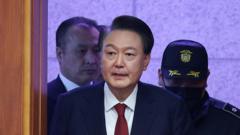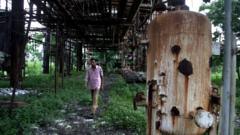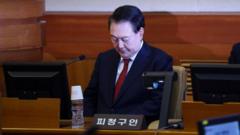Mozambique's top court has validated the results of a disputed presidential election, enabling Frelimo’s Daniel Chapo to take office despite widespread protests and allegations of irregularities prior to the vote.
Mozambique’s Supreme Court Confirms Controversial Election Results Despite Protests

Mozambique’s Supreme Court Confirms Controversial Election Results Despite Protests
The ruling allows Frelimo's candidate to assume the presidency amidst allegations of fraud.
Mozambique's Supreme Court upheld the results of the recent presidential election on Monday, affirming the victory of Daniel Chapo from the Frelimo party amid allegations of extensive electoral misconduct. This ruling comes in the wake of protests that have reportedly led to over 100 fatalities in recent months, highlighting the political tensions that grip the nation.
Chapo's win allows him to take the presidency next month, while the main opposition candidate, Venâncio Mondlane, has announced his intention to challenge the election's legitimacy and has called for public demonstrations. Frelimo, which has maintained power in Mozambique since the country gained independence in 1975, denies any allegations of electoral fraud.
Independent observers from the European Union noted significant electoral irregularities, including unauthorized changes to vote tallies, raising concerns about the integrity of the election process. Mozambique, with a population of 33 million, faces severe socio-economic challenges, including the aftermath of Cyclone Chido that recently claimed at least 94 lives in the northern region and an ongoing insurgency linked to Islamic State, jeopardizing crucial natural gas projects that could alleviate the nation’s economic strife.
Chapo's win allows him to take the presidency next month, while the main opposition candidate, Venâncio Mondlane, has announced his intention to challenge the election's legitimacy and has called for public demonstrations. Frelimo, which has maintained power in Mozambique since the country gained independence in 1975, denies any allegations of electoral fraud.
Independent observers from the European Union noted significant electoral irregularities, including unauthorized changes to vote tallies, raising concerns about the integrity of the election process. Mozambique, with a population of 33 million, faces severe socio-economic challenges, including the aftermath of Cyclone Chido that recently claimed at least 94 lives in the northern region and an ongoing insurgency linked to Islamic State, jeopardizing crucial natural gas projects that could alleviate the nation’s economic strife.





















